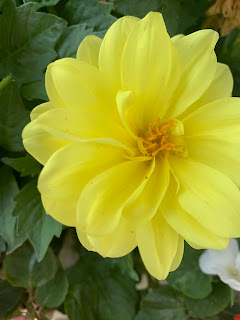From my book Wrestling with Wonder ...
It might have happened like this:
MARY TELLS HER STORY
There’s no place for us. No place for this babe, this Son of the Almighty God, that I bear.
But the pains come anyway. Sharp, insistent. Not now, I want to say. Not yet. There is no place for you. Nowhere for you to be born.
But my womb clenches again and I gasp. The pains are more regular now, radiating into my back. He will not wait, this divine baby of mine.
Joseph approaches me, places a hand on my tight belly. He shakes his head.
No place for us.
I nearly double over. My breath comes quickly, heavily.
“There is a place with the animals,” he whispers.
I swallow. Hard. Is it possible that this child, the Messiah, the King of all Kings, will be born in a barn? No...
Lord, is there no where else? Can You find no other place for your own Son?
But the heavens are silent. No guest room, no spare closet, no private corner in a relative’s home.
And the pain comes again.
Joseph takes my arm. “We must hurry.”
“Not the stable.”
“It’s the only place. I’m sorry.”
I’m sorry too. Oh, Lord . . .
Step by step, stopping to breathe, to not breathe. To groan. I make my way toward the animals.
And then we are there. In the rustling, the stink, the dirt, the mud. No midwife. No friend. No mother. Just me. Just Joseph. And them.
A donkey brays.
A cow lifts its tail.
A horse stomps and spreads four legs.
No, not here ...
I lay on the filthy straw. I pant. I cry.
A horse nickers, pushes at an empty feeding trough.
I swat a fly. And the pain comes again.
This time, I scream. I wheeze. I gasp. And my mind floods with ripping agony. Ten seconds. Twenty. Thirty. A minute. And more. I breathe again. I must breath.
Joseph grabs the rags. I am sweating now. He wipes my brow. But there is nothing he can do. He cannot share this pain.
No one can.
My belly contracts. Hard. I clench my teeth. Bite back my shouts.
It hurts. Oh Lord, it hurts so much.
My sweat, mixed with the smell of horse urine and cow dung. The snuffling of a donkey. The frightened glance of a husband who is not the baby’s father.
Help, Lord!
A rush of water runs down my legs. Minutes turn to hours. Hours of shocking pain and moments of panting relief. On and on.
The pain. Mind-numbing. Middle-ripping. Pain.
And the pressure.
Finally, the baby is coming. I scream at Joseph. But he is ready.
I am half-squatting, half-laying.
“Push,” he yells.
I push.
I yell.
I breathe. Breathe in the rank stink. Breath in the smell of blood. Breathe in the scent of things that no king should smell.
But this King will.
Oh God, will he really be born in a barn? Your Son? The hope of all Israel?
I push. And rest. And push. And yell. And push. And cry. And push. And groan.
It is no easy thing to birth a Savior.
I see his head!” Joseph’s eyes are wide. His hands ready.
I bear down. Hard.
And the baby comes. A King, sliding into this world covered in vernix and blood, and surrounded by animals as the only witnesses to this moment that will change the world.
Joseph laughs.
The baby wails.
And I weep.
I weep for a Promise born in a barn. I weep for a Messiah born in the stink. I weep for a King crowned not with gold but with blood. Will it always be so?
Joseph cuts the baby’s cord. He presses my stomach and the afterbirth spews from me.
It is done, this birthing of a Savior.
Joseph wipes him with a rag and hands him to me. I gather him in my arms. He looks so normal, this Son of God. So ordinary. So small, this tiny babe, with a stock of dark hair, a red face, and wrinkled, old-man skin. This, this is the One we’ve waited for.
I close my eyes and kiss his forehead.
He squirms and squawks at me.
I wrap this ordinary, extraordinary baby in rags and place him in the empty feeding trough. A box made for the animals to eat becomes his bed. He looks around. Dark grey eyes taking in a world gone awry.
What must it be like for God to see through the eyes of a human babe? To smell through a human nose? To feel the scratch of the rags, the hardness of the board?
But he doesn’t cry. Not at this moment.
He just looks.
He sees.
And my eyes blur.
There is the King of all Kings, the Son of God himself, wrapped in rags and lying in a feeding trough. A Messiah surrounded by stink. But somehow I don’t smell it anymore.
I laugh. I laugh at the incongruity. I laugh at the wildness of my God.
I laugh, because the God of the Universe took my barn and turned it into a palace. He took what should not be and filled it with wonder.
















